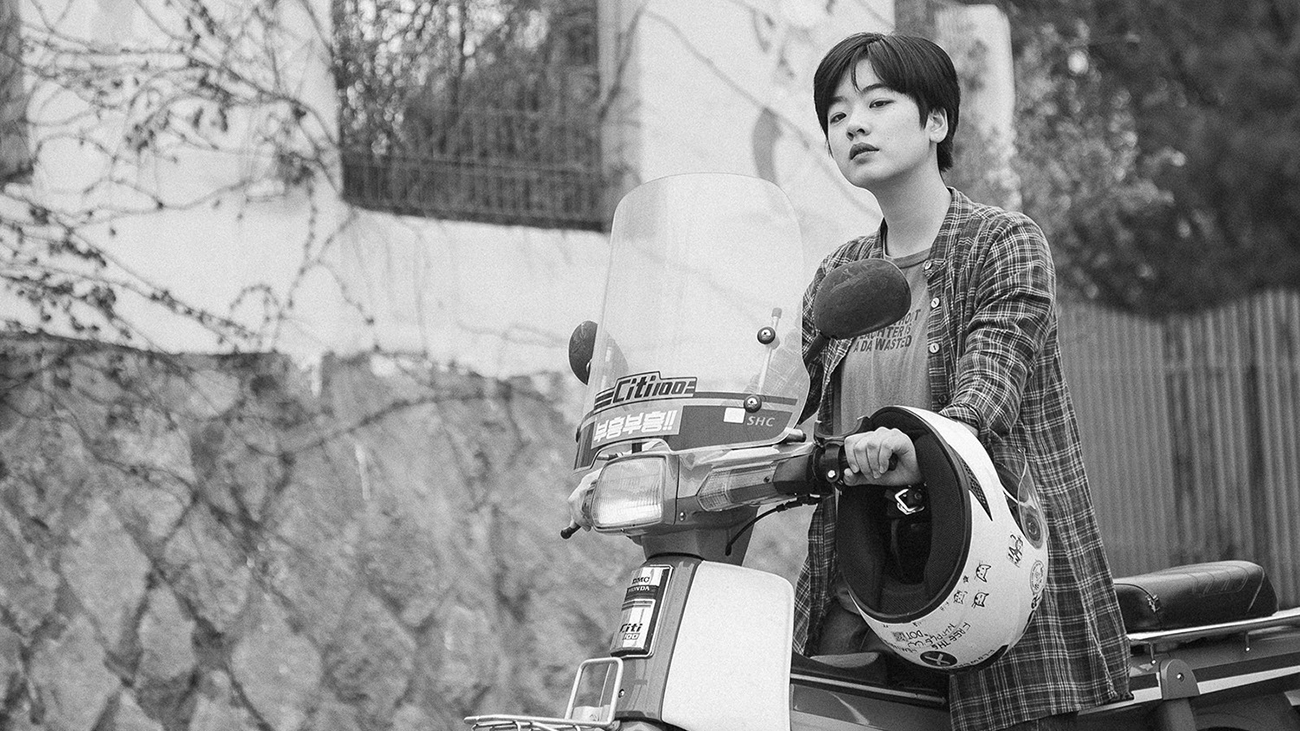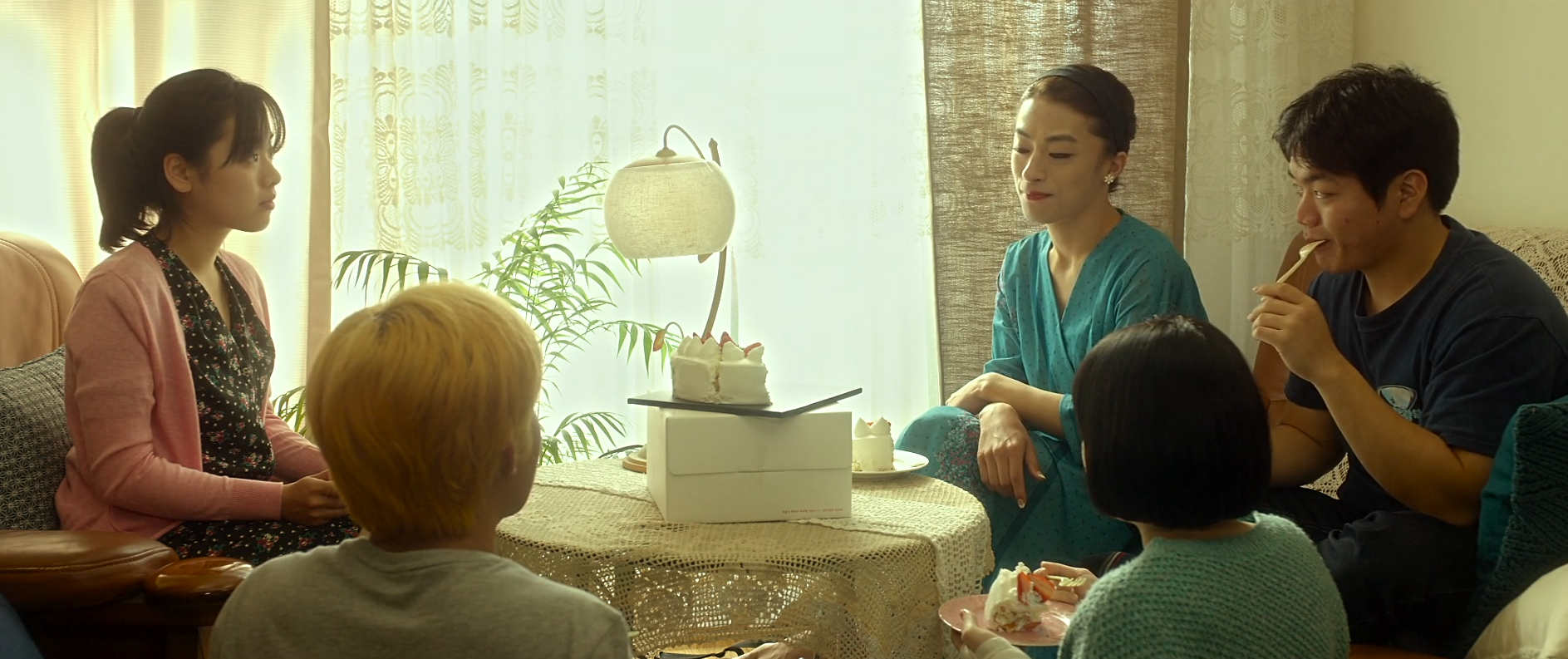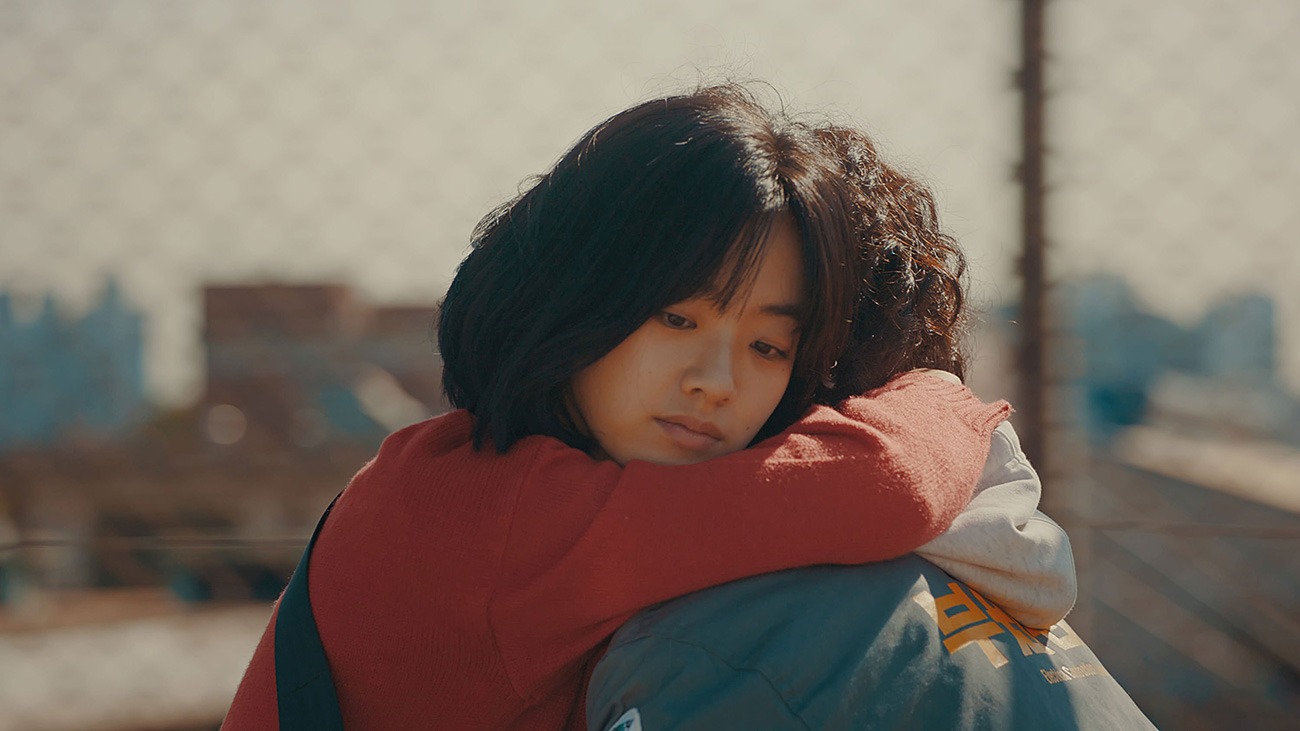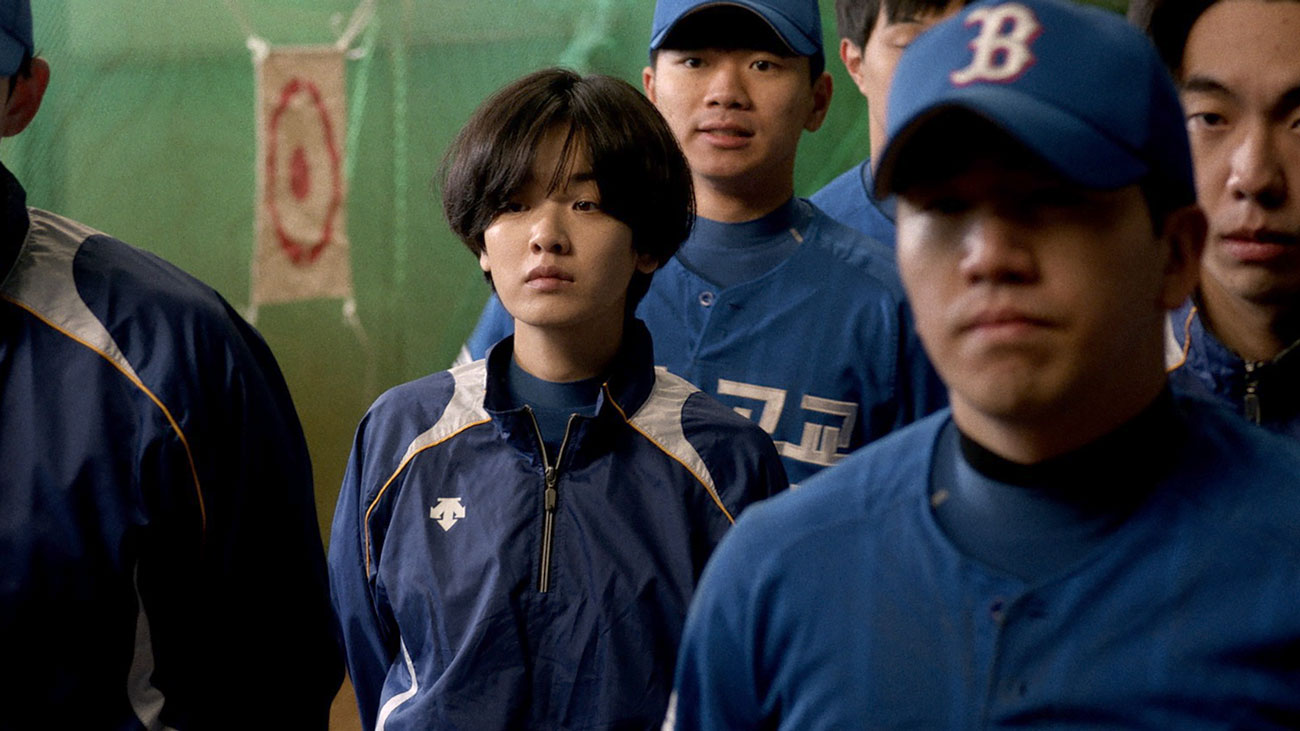This article was created in partnership with Korean Film Festival in Australia (KOFFIA). The 2020 edition of the festival will be hosted digitally from October 29 – November 5 2020, exclusively in Australia. All films at KOFFIA 2020 will be free to watch. For more information, visit the festival website.
For actress Lee Joo-Young, when it comes to deciding on roles it is not the screen time or potential success of the film she considers, but the substance of her character.
“I don’t think there are many scenarios for female actors, especially new actors. This is not a matter of how many lines I have in the scenario,” she told GQ Korea. “The reason for the character’s existence should be able to persuade me.”
Such an approach has seen Lee craft a small, yet high-quality, filmography which promotes inclusivity and challenges restrictions on the roles women can play. In just a few years, Lee has quietly become one to watch through her work in independent cinema focusing on the underprivileged, such as immigrants in A Quiet Dream or runaway teens in Jane.
Even with her transition to mainstream television dramas, Lee’s dedication to highlighting self-determined women and LGBT+ stories is unwavered, with her portrayal of transgender woman Hyeon Yi on the wildly popular Itaewon Class earning praise from the likes of Forbes.
While Lee notes that her ‘gender free’ image from such roles is unintentional she acknowledges her selections are evidence of her care around gender portrayal in the Korean film industry.
“I always try to stay awake when it comes to gender sensitivity,” she said. “ I don’t think this is just me uniquely talking about it, I think the world is now finding what it needs to say in a more effective way. It’s so nice working on it through acting because I see that things are getting better.”
This is more apparent than ever with her most recent film Baseball Girl, where Lee plays a female high-schooler who battles against gender discrimination in her efforts to become a professional player.
With Lee’s Baseball Girl and Maggie appearing at the 11th Korean Film Festival in Australia (available for FREE online from October 29 to November 5 2020), we look back on the actress’ impressive body of work so far.

A Quiet Dream (2016)
Beginning her career with several short film appearances, Lee made her feature film debut in 2013 with Beauty of Journey. However, it wasn’t until 2016 that she began to make waves in the festival circuit, acting in three films selected for the 21st Busan International Film Festival, including opening night film A Quiet Dream.
Witty and heartfelt, the black-and-white A Quiet Dream follows a close-knit group of outsiders. Chinese immigrant Yeri (Han Yeri, an actress Lee considers herself a fan of) looks after her disabled father while running a tiny bar. Her most frequent customers are three men who dance the line between friends and suitors. On the fringes of this central crew is Joo-Young (Lee Joo-Young), a poet whose feelings for Yeri run deeper than their existing friendship.
Despite her small screen time, Lee leaves quite the impression. Introduced as a sporty tomboy (an image that has stuck with Lee throughout her career), at first she appears aggressive and sassy when throwing back insults at the men who question her gender. Demonstrating Lee’s versatility in the few scenes she appears, Joo-Young’s attitude and emotional confidence shifts form when interacting with Yeri.
Compared to the frustration she shows around the men, Lee’s performance takes on a more graceful and gentle demeanor when with Yeri. Meeting with Yeri as friends, there is careful consideration before each of Joo-Young’s words, her shifts in gaze hinting at the romantic tension she struggles with inside.
The two seemingly-opposing facets of Joo Young’s character — the brazenly self-assured and the emotionally tender — coalesce in her wordless confession to her crush. Suddenly grasping Yeri by the chest and pulling her towards her, Lee demonstrates her strength in utilising pauses to emphasise emotion, in this case the peace and longing she feels when embracing Yeri, even when her love is unrequited.
This emotional honesty towards Yeri was key in achieving director Lu’s vision, while also drawing more of her off-screen self to the role. Sharing more than just her character’s name and hobbies (in fact, the motorcycle she rides in the film was her own), Lee says she likes to express herself honestly. In the years to come, this ability to tap into her emotions with ease would come to be a defining aspect of her acting.

Jane (2017)
Lee would continue her penchant for headstrong characters as Ji-Soo in the dream-like drama Jane.
Told through the untrustworthy perspective of a young girl, the homeless So Hyun (Lee Min-Ji) is one day rescued by the mysterious Jane (Koo Gyo-Hwan). Taken in by Jane, So-Hyun joins a cobbled together family of runaways, including Ji-Soo. After a tragic incident, So-Hyun wakes up in a dingy apartment with another ‘family’. However, this time the love and acceptance she felt with Jane is replaced with exploitation and rowdiness. As So Hyun follows the commands of her new house owner, she comes across the kids she formerly lived with — though seemingly without any memory of them.
Of the central kids, Ji-Soo is the only one who shows any compassion and conviction. After the film’s half-way pivot, the new versions of the runaways all seem to have internalised their pain and turned submissive out of fear and hopelessness. Conversely, Ji-Soo is unafraid to stand up to their abusive house owner (who refers to himself as ‘Dad’) in order to maintain her morals and goals. Secretly working a part-time job to save for an apartment for her sister, Ji-Soo challenges authority more directly during a confrontation with Dad. Falsely accusing Ji-Soo of stealing his money (a trick he previously pulled on So-Hyun as an excuse to abuse her), she refuses to admit to his lie. When attempts to de-escalate the situation break-down, Ji-Soo is locked in a room.
Ji-Soo’s desperation and determination to escape is brought to life with explosive energy by an off-screen Lee, who delivers an impassioned tirade against her captors, shouted through the padlocked door she tries to ram down with loud thuds.
The contrast of Ji-Soo’s character to those around her is present throughout all aspects of Lee’s performance. Ji-Soo jokes around with her kid sister while giving her gifts in a cute display of sibling bonding (a rare occurrence in the film’s second half), whilst in the first half Lee’s quiet display of reflection after a tragedy, while the other kids move on, demonstrates Ji-Soo’s conscience and respect for family. These scenes, and the effortless depth Lee brings to them, all contribute to building Ji-Soo’s character, upon which many of Jane’s later emotional beats rely.

Maggie (2019)
Three years later, Lee would finally make her feature lead debut in the quirky comedy Maggie. Impressed after seeing her performance in Jane, director-writer Yi Ok-Seop cast Lee as Yoon-Young, a young nurse who lives with her unemployed boyfriend (Koo Gyo-Hwan).
The day after a couple are caught in an embarrassing situation at the hospital Yoon-Young works at, the entire staff call-in sick. The only two workers who clock-in that day, Yoon-Young and senior doctor Kyung-Jin, suspect the staff may actually be avoiding confrontation over the incident and decide to head out to find out the truth. Meanwhile, Yoon-Young begins to have doubts about her relationship with boyfriend Sung-Won.
The film marks a reunion for actors Lee and Koo, whose on-screen relationship is now that of a couple. On reuniting and making their chemistry work, Koo called Lee a “good partner” and praised her versatility, saying “On set, we were able to go well with a lot of flexibility without making things pre-fixed all the time.”
While actors Lee and Koo work well together in real life, on-screen their relationship turns tense once Yoon-Young hears of Sung-Won’s past. Once matching Sung Won’s free-spiritedness and endearing immaturity in early scenes of them play fighting, Yoon Young’s demeanour becomes distrustful and agitated. Encapsulating the narrator’s observation that “Nothing has changed, but she knows something is different”, Lee incorporates a stillness and distance into Yoon-Young’s previously playful physicality.
As the film heads towards its surreal conclusion, we are left with a final shot focused on Lee’s expressions to decipher meaning. In the space of just a few seconds her shifts in emotion are subtle yet telling — smoothly transitioning from what appears to be shock, or perhaps concern, to even relief. Such minute attention to detail in her performance earned Lee the Best Actress Award at the 23rd Busan International Film Festival and nominations at smaller independent festivals.

Baseball Girl (2020)
Lee would again present her work as lead actress at Busan International Film Festival the next year with the sports drama Baseball Girl.
Lee carries with her all the self-assuredness and cockiness one expects of ambitious teenagers in her role as high school baseball player Joo Soo-In. The only girl on her high school team, as graduation approaches there is only one career option in Soo-In’s mind — to go pro. Continually told by her mother and school principal to give up on what they see as impossible, Soo-In’s resolve only grows stronger as she challenges preconceived notions around gender and skill in professional baseball.
While one might expect Lee to draw upon her background in physical education for the role (she began her college education studying physical education before switching to theatre), she instead revealed that tapping into her feelings as an adolescent was key to bringing Soo-In to life.
“Rather than saying that I used my experience at the College of Physical Education to understand the character Joo Soo-In, I’d say that I understood her through the emotions I felt while going through my teenaged years and my early and mid 20s,” she told media.
In fact, Lee knew “nothing about baseball before shooting”, requiring her to undergo training with a real high school baseball team for a month.
“When practicing, it was important to try myself, but the coach also told me to observe as much as possible how the real players throw. But it was really hard for me to throw 60~70km,” Lee recalled with a laugh.
“I felt like I wanted to give up several times because I couldn’t keep up with the players’ abilities,” she told DongA Ilbo. “While training, I could understand Soo In’s struggle better.”
Outside of the physical training required for the role, Lee also identifies deeply with the willpower Soo-In displays throughout the film. Just as Soo-In pushes through a series of discouraging failures, Lee too confronted moments of doubt regarding her acting career with a harder determination to succeed.
“As I was on the road to becoming an actor, I had moments where I’d think to myself, ‘Should I continue doing this?’ or ‘Do I really have talent?’,” Lee said. “Every time I would think that way, the first thing I did was just try it out, like Soo-In did.”
“Step by step, I’ve gotten to where I am now by thinking about how I haven’t tried everything I can and that I want to keep pushing forward.”
Lee’s dedication to both her role and broader career has paid off, seeing her earn the Actress Independent Star Award at the Seoul Independent Film Festival, as well as being recognised at the 2020 New York Asian Film Festival with their Rising Star Award.
Despite her critical success, as well as her rising popularity with the Korean public from her K-Drama work, Lee says there is still more she wants to achieve in her career.
“I feel like I’m starting just now,” she said. “There are so many more directors and actors I haven’t met, so I want to make it one by one as if I’m ticking off my bucket list.”
In the future, Lee hopes that the independent and ‘gender neutral’ female characters which make up her past roles can become normalised in broader Korean cinema.
“Now, there are many female characters that can be seen as self-reliant or strong characters in commercial dramas and movies. Joo Soo In is also like that,” Lee said.
“Nevertheless, I think this is the beginning. I hope I can hear a lot of people saying, ‘I’ve never seen a female character like that before.’”
